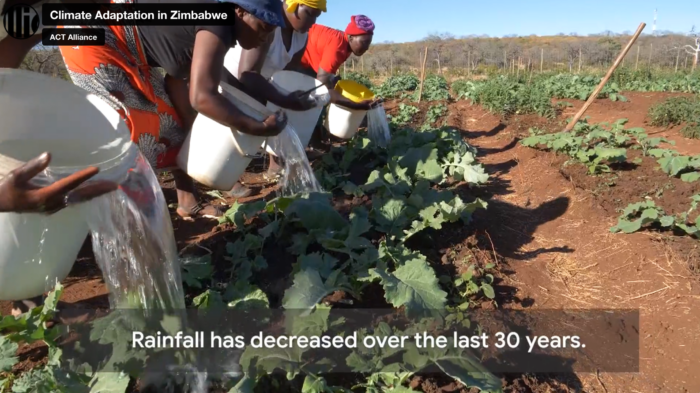By Collins Shava
As you travel across Zimbabwe, particularly in communal areas, you will be greeted by maize fields full of wilting crops, dying due to “thirst.” The rains have been erratic and unpredictable this season. It does not look good for farmers that depend on rain for irrigation. Our country is headed for a long drought.
Dr Anxious Masuka, Zimbabwe’s Minister of Lands, Agriculture and Rural Development said on February 21 that if the country did not receive rain in the following two weeks, Zimbabwe would need to find alternative ways to get maize supplies. This would most likely mean importing grain from countries that have an excess. The cost of living would increase, increasing the vulnerability of a large part of the population. Drought will be a disaster for Zimbabwe, as its people are facing other economic challenges.
Drought and climate change
For me, climate change is the biggest threat to the well-being and livelihoods of people in African nations such as Zimbabwe. Climate uncertainty is increasing African countries’ vulnerability to more occurrences of drought and floods. The World Bank predicts the annual likelihood of Zimbabwe enduring severe drought will increase by 21 percent from 2040 and 2059 and by 47 percent from 2080 to 2099, compared to the baseline period of 1986 to 2005. Due to climate change, Zimbabwe will have more occurrences of drought than ever before.
Small holder farmers who largely depend on rainfed agriculture and do not have access to irrigation infrastructure will be most affected. Most grow their crops in fields of between one and ten hectares, primarily using traditional farming practices.
One solution: Pfumvudza plots
Over the past few years, the Government of Zimbabwe has introduced the “Pfumvudza/Intwasa” farming technique, known to communities as “dhiga udye.” With this technique, small holder farmers plant a wider variety of crops in mulched basins. In 2023 3.4 million pfumvudza plots were prepared for the current 2024 farming season. This practice has helped the country maintain a constant supply of grain, so far.
With projections of reduced annual rainfall in 2040, Zimbabwe will need to develop more initiatives to complement the Pfumvudza programme. This will help small holder farmers and communities adapt to climate change.
Do communities and farmers know what’s coming?
A growing number of people in Zimbabwe now understand the impacts of climate change. Others believe the current climate shocks, drought and floods are a spiritual issue, because the gods/God is angry with the people. As a religious person I understand this perspective and appreciate these beliefs. But given the current phenomenon, it is wise to consider that while we may pray for rain, our requests may not be granted. What we can pray for is to ensure that the gods/God provides wisdom to our scientists and leaders to develop and implement methods to navigate climate change.
There is a need to listen to science and start working on climate adaptation initiatives to cushion our communities to climate change. National and local governments and development partners need to play a leading role in implementing climate adaptation initiatives to save our communities.
We now need to focus more on efficient water harvesting techniques, improved climate-smart varieties of seed, and new farming practices that respond to how the climate is changing. Most importantly there is a need to constantly raise community awareness of the effects of climate change.
Collins Shava is a climate change specialist who is co-chair of the ACT Alliance Climate Justice Campaigns and Communications group. He has worked with the All Africa Conference of Churches and was an LWF youth delegate at previous COPs. He now works with an African environmental agency.
For more on adaptation in Zimbabwe, see the ACT video Climate Adaptation in Zimbabwe.
